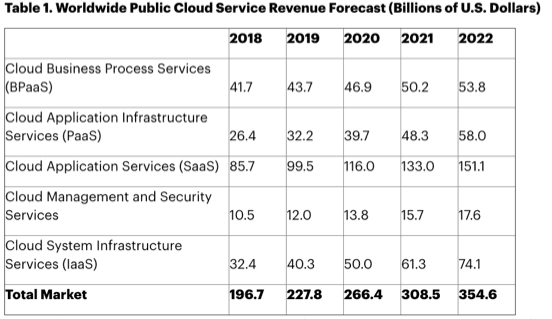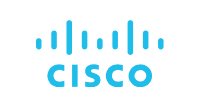A cloud management platform (CMP) can manage and automate workloads and applications across on-premise, multicloud, hybrid cloud, offering invaluable assistance to both IT managers and developers.
What Cloud Management Platforms provide is the ability for an organization to deploy and manage their applications across virtualized infrastructure that can be running in the cloud and in many cases on-premises, applying policy as well security controls. While every cloud and virtual server vendor has its own management interface, many organizations are using multiple technologies in a hybrid deployment on-premises and across multiple cloud providers – hence need for a cloud management platform.
Cloud Storage and Backup Benefits
Protecting your company’s data is critical. Cloud storage with automated backup is scalable, flexible and provides peace of mind. Cobalt Iron’s enterprise-grade backup and recovery solution is known for its hands-free automation and reliability, at a lower cost. Cloud backup that just works.
Expect the cloud management sector to grow in size and importance, as the cloud continues its development as the de factor enterprise IT environment.
Along with other fast-growing cloud sectors, Cloud Management is expected to see rapid growth in the years ahead. Source: Gartner.
How To Select a Cloud Management Platform
Managing application workloads across virtualized infrastructure can be a complicated task. There are several key criteria to consider when selecting a Cloud Management platform.
Deployment options. It’s critical to make sure that the selected platform covers all the different options the enterprise uses, be it a specific cloud vendor or on-premises virtual server technology.
Cost tracking. The ability to manage, track and forecast the cost of running a given workload is a key attribute.
Policy Management. Running workloads across multiple cloud requires policies, to make sure that even though different services are used, there is a uniform approach to policy.
In this Datamation top companies list, we spotlight the vendors that offer the top cloud management tools.
- BMC Cloud Lifecycle Management
- Cisco CloudCenter
- Embotics
- Flexera Rightscale
- Hypergrid
- Morpheus Data
- Red Hat CloudForms
- Scalr
- VMware CloudHealth
- Cloud Management Platform: Comparison Chart
Top Cloud Management Platforms
The following cloud management platforms are current leaders in the rapidly changing cloud market.
BMC Cloud Lifecycle Management
Value proposition for potential buyers. For organizations looking for a service that can help with the provisioning and management of applications on cloud resources, BMC Cloud Management is a reasonable choice.
Key values/differentiators:
- A key differentiator for BMC Cloud Lifecycle Management is the platform’s integration with IT processes including patching and change management.
- Compliance is a core part of the platform with policies for both security and regulatory compliance that be automated throughout an application’s deployment lifecycle.
- Beyond just provisioning workloads, the service has an integrated health management capability that provide administrators with a unified view of how workloads are performing across deployments.
- Self-service provisioning is another key element, making it easier for users to setup and deploy workloads.
Cisco CloudCenter
Value proposition for potential buyers. With its industry-leading strength in networking, Cisco offers CloudCenter is the ultimate hybrid/networking tool, allowing companies to manage and deploy to multiple clouds with a single environment.
Key values/differentiators:
- CloudCenter’s Action Orchestrator simplifies the automation of workflow, which lessens the need for IT professionals to perform the same tasks again and again.
- Controlling costs is a key feature of CloudCenter. The platform enables cost reporting that details both on-prem and public cloud costs.
- It is fully multicloud: CloudCenter works with virtually every major cloud platform, from AWS to Alibaba, IBM to Google Cloud.
- With CloudCenter, a workload can be in a cloud-native application in Kubernetes, or in a legacy enterprise app.
Embotics Commander
Value proposition for potential buyers. Embotics commander is a good fit for organizations looking for a hybrid cloud management platform that has strong cost management capabilities.
Key values/differentiators:
- One the of the primary key differentiators is the robust cloud expense management components that can enable an administrator to understand costs and integrate with an organization’s existing billing systems.
- Cost optimization is another element, with Embotics Commander giving suggestions on virtual machine instances that have been over-provisioned.
- Embotics Commander Compliance Policy can be used to tag cloud instances to make sure that deployments follow best practices.
- The whole process of getting a workload deployed can be highly automated, including approval provisioning and removal of resources with user-configured policies.
Flexera Rightscale
Value proposition for potential buyers. Rightscale is a good option for larger organizations looking for a multi-cloud workload management platform that has strong backup features.
Key values/differentiators:
- Rightscale was acquired by Flexera in 2018, with the the Rightscale brand name slowly falling to the background as the technology is integrated.
- A key differentiator for Flexera Rightscale is the cloud migration feature that makes it easier for organizations to move assets as well as handle backup and disaster recovery.
- Classification of all the different workloads as part of the management view is a helpful feature to help administrators get a better view of what is actually running.
- Another core attribute is extensibility with a modular plug-in architecture that can extend the native capabilities to different custom needs.
Hypergrid HyperCloud Intelligent Cloud Management Platform
Value proposition for potential buyers. For smaller and mid-sized companies, Hypergrid has a good set of options for managing cloud and virtualized resources.
Key values/differentiators:
- The costing function provides proactive budget monitoring to help organizations stay on track with cloud expenses. Going a step further is the predictive application costing feature that can help forecast future costs.
- The platform’s compliance analytics dashboard can be used to monitor compliance, and also can be setup with guardrails to help enforce compliance as well.
- A key differentiator for HyperGrid is the integration with container and DevOps workflows, letting users deploy from development to different cloud targets in a manage approach.
- HyperGrid delivers centralized management for AWS, Microsoft Azure, GCP, Open-Stack, Microsoft Hyper-V and VMware vSphere.
Morpheus Data
Value proposition for potential buyers. Morpheus is well suited for large organizations that have hybrid IT deployments and need a unified approach for management of on-premises and multi-cloud servers.
Key values/differentiators:
- The reporting and policy engine in Morpheus is a particular area of strength with very granular and customizable options for administrators.
- A key differentiator is the depth of the analytics engine that provides useful metrics on overall utilization across different deployment approaches.
- The ability to budget and forecast cloud costs is a core competency of the Morpheus platform that also lets users easy compare different options in terms of cost impact.
- Integration with DevOps pipeline is another area where Morpheus shines, making it easy for developers to build and deploy code to the right infrastructure in an automated approach.
Red Hat CloudForms
Value proposition for potential buyers. Cloudforms is a good option for organizations looking for an open source based approach to cloud management that runs well in Linux environments.
Key values/differentiators:
- A key differentiator for Cloudforms is the breadth of platform that it can manage, beyond just the major public cloud providers (Google, Microsoft and Amazon) it also handles OpenStack, VMware and Red Hat Enterprise Linux server management.
- Users can also manage Red Hat OpenShift as well as container based environment with Cloudforms, further expanding the reach of the platform.
- Handles full management lifecycle for resources from provisioning to decommissioning.
- The idea of infrastructure-as-code can be enabled with Cloudfroms when it is paired with Red Hat’s Ansible offering.
Scalr
Value proposition for potential buyers. For enterprise buyers that are looking for a cloud management platform with strong security controls, Scalr will fit the bill.
Key values/differentiators:
- A key differentiator for Scalr is the platform granular Role Based Access Control (RBAC) system that extends across all supported environments.
- The platform can be setup to enable the deployment of customized provisioning portals for self-service use-cases.
- Cost viability and optimization can be mapped to an organizations structure and accounting chargeback model.
- Spending can also be controlled with Scalr’s reclamation feature which will turn off un-used cloud resources.
VMware CloudHealth
Value proposition for potential buyers. For VMware customers, CloudHealth is a particularly good fit given the platform’s growing alignment with VMware based workloads.
Key values/differentiators:
- VMware acquired CloudHealth in 2018 and has been advancing the technology over the course of 2019, providing deeper integration with the VMware portfolio.
- A key strength of the CloudHealth platform is the workload optimization feature which can help users to put workloads on the right type of server, be it VMware on-premises or a public cloud deployment
- One of the differentiators for CloudHealth is the broad set of partner service providers that can plug into the platform for different use-cases and application needs.
- Cloud governance is another area where CloudHealth shines with policy configuration option that can be customized for any organization’s workflow.
Cloud Management Platform: Vendor Comparison Chart
|
|
Features |
Key Differentiator |
|
BMC Cloud Lifecycle Management |
Self-service workload provisioning. Compliance management. |
Integration with patching and change management systems. |
|
Embotics Commander |
Automated deployment. Best practices tracking for workloads. |
Comprehensive cloud expense management tracking and planning. |
|
Cisco CloudCenter |
Fully multicloud. Simplifies workload automation. |
Cisco’s industry-leading experience with networking. |
|
Flexera RightScale |
Workload classification. Plug-in architecture. |
Cloud backup and disaster recovery. |
|
HyperGridHyperCloud Intelligent Cloud Management Platform |
Proactive budget monitoring. Analytics dashboard. |
Integration with DevOps workflows. |
|
Morpheus Data |
Cloud cost budgeting and forecasting. Reporting and policy engine for compliance. |
Deep analytics for service utilization. |
|
Red Hat CloudForms |
Manages container, Linux, virtualized and cloud deployments. Lifecycle management. |
Based on open source technology. |
|
Scalr |
Provisioning portals. Cost viability and optimization. |
Granular Role Based Access Control security. |
|
VMware CloudHealth |
Cloud governance and compliance. Policy configuration. |
Workload optimization. |










